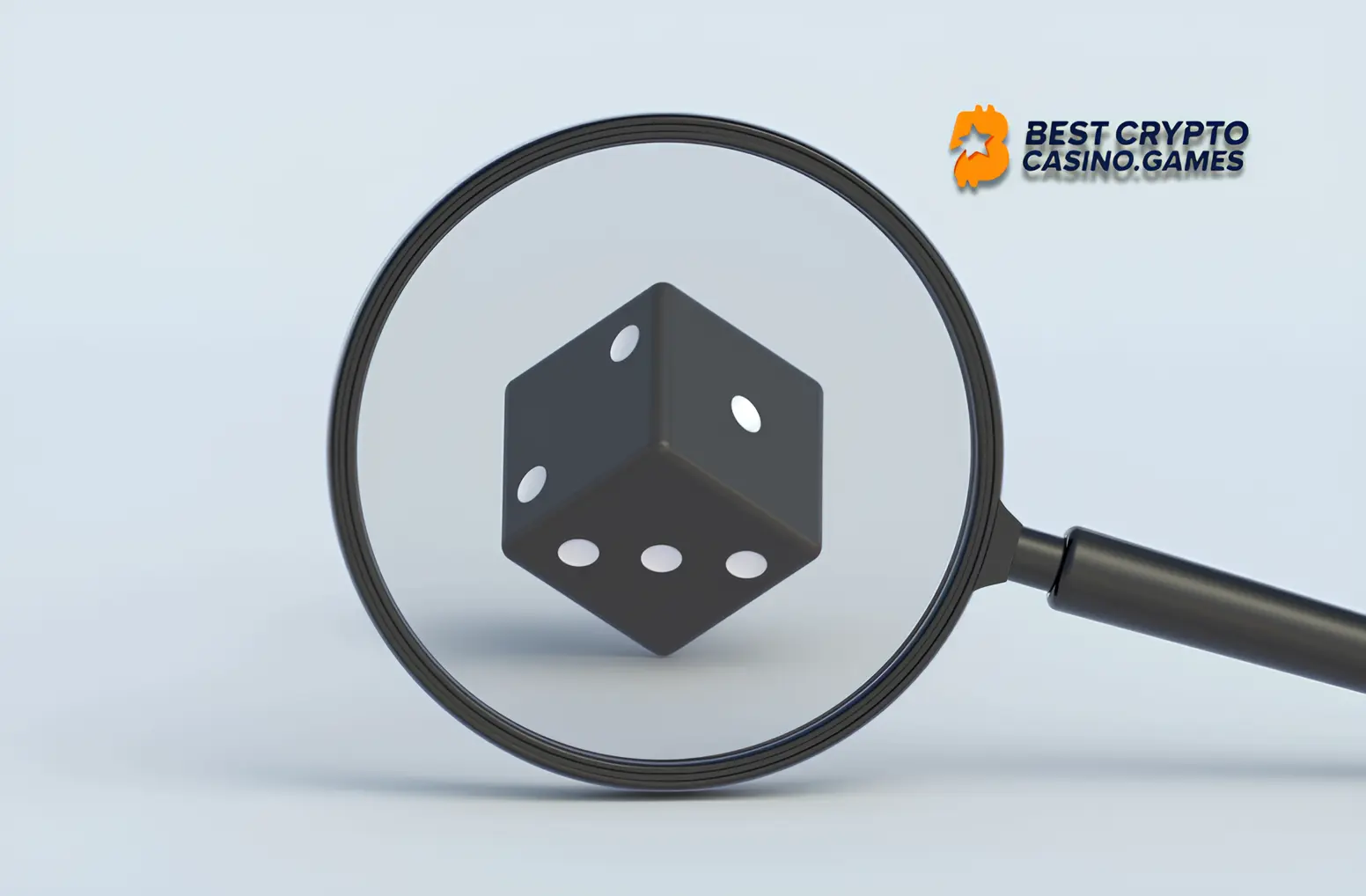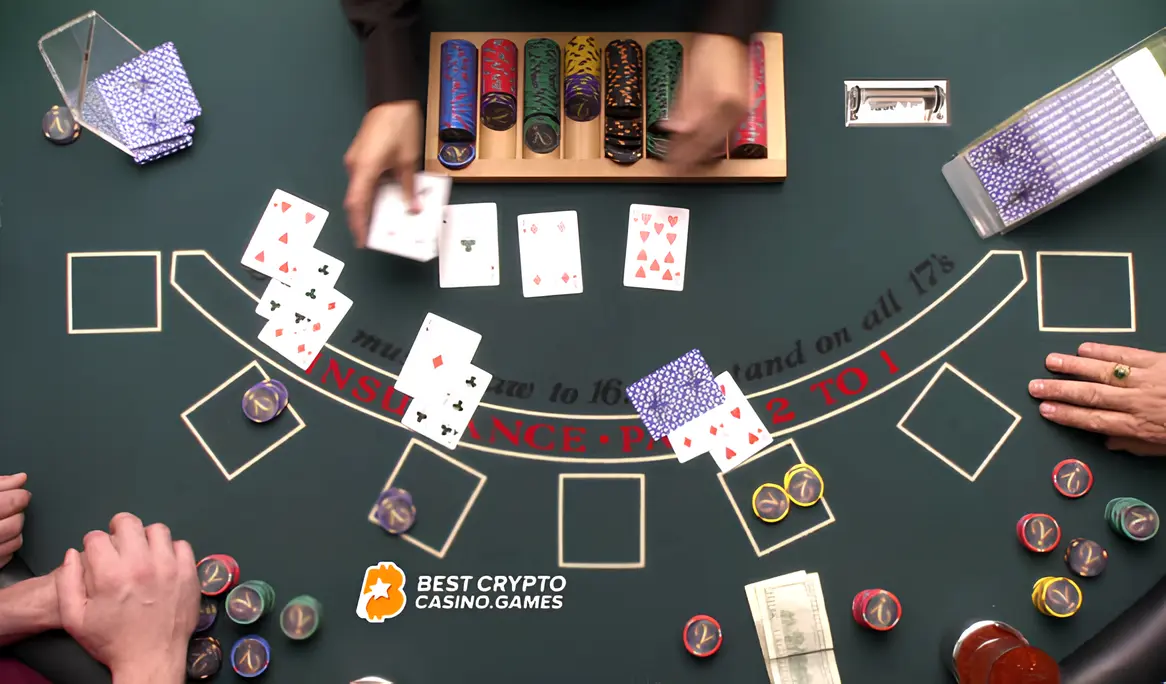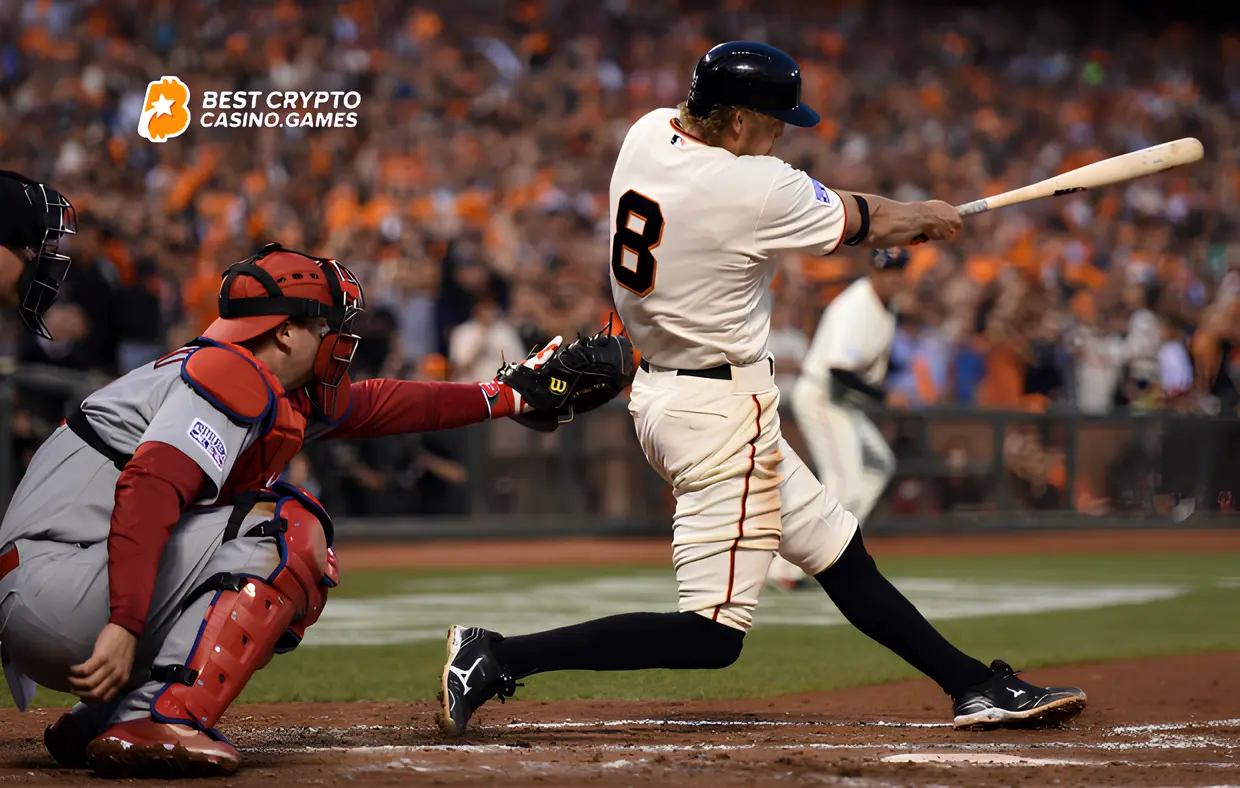Exploring the Role of Probability Theory in Casino Games

Imagine walking into a dazzling casino for the first time, the excitement palpable. How do those games really work? The role of probability theory in casino games is profound, underpinning the entire gaming experience with precise calculations and odds. This applies not just to traditional games, but also to Crypto Casino Games, where probability and technology merge to create a unique gaming environment.
Introduction to Casino Theory
Casino theory, at its core, delves into the mathematical frameworks that drive gaming outcomes and player behavior.
From an analytical standpoint, casino theory is a fascinating amalgamation of probability, statistics, and risk management, providing a structured approach to understanding and projecting gambling scenarios. These theoretical principles are meticulously engineered to ensure that the house always maintains an edge while offering players a fair chance to win.
Historically, casinos have evolved by harnessing the power of these mathematical concepts. In applying these theories, casinos balance attracting players with offering games that are reliable sources of revenue, ensuring sustainability and profitability in the business.
By comprehensively understanding casino theory, individuals can gain remarkable insights into both the operational strategies of casinos and the broader economics of gaming. This understanding fosters a deeper appreciation of the intricate engineering behind casino games, empowering players and industry professionals alike to engage more effectively with the world of gambling.
The Basics of Probability in Gambling
Understanding the role of probability theory in casino gambling involves grasping fundamental principles that govern the odds of various outcomes, which then shape decisions and strategies.
Probability theory helps players make informed decisions, minimizing erratic betting behavior.
This field of mathematics is used by both players and casino managers to predict the likelihood of specific events occurring, making it a cornerstone of strategy development. Whether contemplating the roll of dice, the spin of a roulette wheel, or the shuffle of cards, probability theory is central in illuminating potential outcomes.
For a player, knowing the basics of probability can mean the difference between a strategic approach and a wild guess. Equip yourself with knowledge, and approach each game with the confidence that comes from understanding the underlying mechanics. By adeptly calculating odds and employing strategic foresight, one can maximize both enjoyment and potential success at the casino.
Understanding Game Theory Math
Grasping the intricacies of game theory math is vital for anyone delving into casino games. Game theory investigates mathematical models of strategic interactions.
These interactions help in predicting players’ actions in competitive scenarios. This branch of mathematics provides insights into decision-making.
In essence, game theory explores how competitors can use strategies to maximize their gains while minimizing losses. It factors in the anticipation of opponents’ moves, making it an indispensable tool for serious gamblers.
By integrating game theory with probability, players can develop more effective strategies. This fusion enhances their ability to predict others’ actions and adjust accordingly to maximize their chances of winning. Embracing these advanced mathematical concepts empowers savvy gamblers to turn the tide in their favor, ensuring a well-rounded and strategic approach to casino gaming.
How Casinos Use Gambling Mathematics
Casinos capitalize on gambling mathematics to thrive.
They utilize mathematical principles to devise games with predictable profits. By ensuring a statistical edge for the house, known as the house edge, casinos can secure consistent revenue. Mathematicians and statisticians meticulously analyze game designs to fine-tune these advantages, thus maintaining profitability.
This mathematical foresight builds trust.
Casinos offer games with transparent odds – an approach that reassures patrons of fair play while subtly ensuring long-term financial gains. Meticulous mathematical calibration boosts player engagement by providing a structured, albeit challenging, gaming environment.
Probability theory remains integral to this strategy. By embedding probability calculations within each game, casinos can predict outcomes accurately. Consequently, this not only fortifies their financial foundation but also elevates the overall gaming experience, enticing players with well-balanced, exciting challenges.
Probability in Slot Games
Probability’s pivotal significance in slot games, a cornerstone of casino entertainment, shapes their allure. Strategically designed with intricate probability algorithms, these machines captivate players by offering a tantalizing balance between risk and reward. Probability theory dictates the frequency and size of payouts, fostering a thrilling atmosphere underpinned by mathematical precision. This structured unpredictability enhances the player’s experience, encouraging prolonged engagement and reinforcing the casino’s profitability. By mastering the art of probability, casinos craft enthralling slot experiences that continually draw in and retain enthusiasts.
What Are the Chances of Winning at the Casino?
Understanding the role of probability theory in casino games is paramount to mastering their dynamics.
Slot machines generally have a payout percentage ranging from 85% to 98%, varying by game and casino.
Probability calculations influence the structure of every game, defining the expected outcomes that ensure the casino maintains a pivotal edge. By comprehending these underlying principles, players can better appreciate the intricacies behind each win or loss.
This mathematical framework instills confidence for both players and operators, fostering an environment where skill and chance intertwine seamlessly. Embracing the science behind these games transforms the gambling experience into a sophisticated pursuit.
Calculating Slots Probability
Calculating slots probability involves understanding the randomness built into the design of slot machines. In 2016, advanced algorithms, a hallmark of slot machine programming, revolutionized how probabilities were factored into the gaming experience, ensuring sophisticated random outcomes and fair play. Today, it’s crucial to understand every slot machine’s probability to grasp the intricate balance of the gaming outcome. Each reel’s symbols are mapped to virtual stops, influencing the likelihood of specific symbol combinations.
Modern slot machines, including crypto slots, contain thousands of virtual stops, each affecting the potential results. By employing Random Number Generators (RNG), they ensure a genuinely unpredictable and unbiased experience benefiting both players and casinos. Remember, slots’ complexity is why these games are both exciting and unpredictable.
Application of Probability in Table Games
The role of probability theory in table games such as blackjack, poker, and roulette is paramount for both players and casinos, shaping strategies and influencing outcomes. For the well-prepared player, understanding the probabilities can translate into strategic decisions that enhance the chances of winning, whether it involves calculating odds, predicting opponent behavior, or deciding when to bet.
Moreover, probability determines the house edge, ensuring the casino remains profitable while offering balanced odds for players. This symbiotic dynamic fosters an engaging and fair gaming environment.
Blackjack and the Role of Probability
In the realm of casino games, few can match the strategic depth and exhilarating pace of blackjack, where probability theory plays a crucial role in determining outcomes.
Blackjack is profoundly influenced by statistical probabilities and mathematical strategies.
Players must understand the likelihood of drawing certain cards or reaching specific hand values to excel.
For instance, knowing the probability of busting with an additional card is essential.
This knowledge allows skilled players to make well-informed decisions that maximize their chances of winning, leading to a highly competitive environment.
Ultimately, the game of blackjack demonstrates how mastering probability can turn the tide, making it both an intellectually rewarding and thrilling experience for its enthusiasts.
Roulette: Analyzing the Odds
Roulette captivates players with its simple yet intriguing premise, revolving around predicting where the ball will land on the spinning wheel.
Each spin of the roulette wheel follows principles of probability theory, delineating the odds associated with various betting options. The game features a variety of wagers, including bets on single numbers, groups of numbers, odd or even, and color. Understanding these odds is crucial for players who wish to make informed decisions and manage their betting strategies effectively.
Mathematically, the odds of hitting a single number in European roulette are 1 in 37. By contrast, the American roulette wheel, with its additional double-zero slot, reduces the probability of a single number bet to 1 in 38. These probabilities affect payout structures, highlighting the inherent edge casinos hold.
For players aiming to navigate the intricate world of roulette successfully, comprehending these odds is vital. Armed with knowledge of probability theory, they can craft strategies that balance risk and reward, enhancing both their enjoyment and potential winnings. This analytical approach transforms roulette into a game of not just chance but calculated anticipation, fostering a deeper appreciation for its elegant complexity.
Risk Management and Probability
The role of probability theory in casino games is quintessential for risk management and strategic planning.
Effective risk management hinges on understanding these probabilities.
Savvy players employ probability theory to assess potential outcomes, thereby creating a balance between risk and reward. This involves calculating expected values, variances, and other statistical measures that guide betting decisions.
Probabilities in games dictate not only individual bet outcomes but also the long-term behavior of the game. This insight allows players to minimize financial exposure and maximize potential returns, transforming gambling from mere chance to a structured, strategic endeavor. In essence, integrating probability into risk management cultivates a proactive rather than reactive gambling strategy.
Strategies to Improve Winning Chances
Understanding the role of probability theory in casino games can significantly enhance your strategic approach and elevate your winning potential.
A systematic analysis of different games reveals potential patterns.
Incorporating rigorous probability calculations into your strategy offers a measurable way to gauge risks and rewards. Techniques like card counting in blackjack or employing the Kelly Criterion for bet sizing in sports can provide an edge.
While no strategy guarantees perpetual success, embracing a mathematical approach equips you with the tools to make informed decisions. This sharpens your ability to identify advantageous situations, elevating your casino experience from mundane betting to an engaging intellectual pursuit.
The Impact of Probability Theory on Casino Profits
Probability theory underpins casino game designs, ensuring that the house always enjoys a statistical edge.
By leveraging mathematical principles to create a favorable margin, casinos guarantee consistent profitability. This inherent house advantage, often referred to as ‘the edge,’ ensures a built-in mechanism for profit generation regardless of random short-term fluctuations.
Consequently, players face insurmountable odds in the long run. While streaks of luck may provide intermittent rewards, the statistical advantage consistently tips the scales in favor of the casino, securing its financial stability.
Moreover, casinos strategically manage their games to optimize profits using probability theory. By structuring payout ratios and adjusting game rules, they can fine-tune the balance between player attraction and sustainable earnings. This meticulous calibration not only enhances player engagement but fortifies the casino’s competitive stance.
Future of Probability Theory in Crypto Casino Games
The future of probability theory in crypto casino games promises revolutionary advances in gaming experiences, bound by transparency, and trust which were previously inconceivable.
Probability will serve as a fundamental tool, aiding in fair gaming practices.
Amidst the rise of blockchain technology, melding probability theory with decentralized systems heralds the dawn of a new era of trust in gaming. These components will fuse, creating environments where transparency, fairness, and provable outcomes flourish.
This paradigm shift profoundly enhances users’ confidence, knowing that game outcomes are not just fair but verifiable. In this brave new world, the application of probability will continue to refine, innovate, and elevate the crypto gaming industry to unprecedented heights. Therefore, the intelligent use of probability theory could very well democratize the future of online gambling, aligning it with the highest standards of fairness and innovation.



